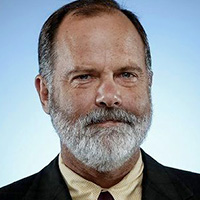THE REPUBLICAN PARTY OF CALIFORNIA gave this state the initiative, referendum and recall. Its governors secured tax increases and gun control and expanded abortion rights. One Republican governor looked forward to welcoming 10,000 new immigrants every Monday; another championed efforts to combat climate change. That same party now has a new role in the life of the nation’s biggest state: It has become a foil for Democrats.
That’s not good news for California. It’s not even good news for Democrats, whose one-party rule grows ever more calcified in the absence of meaningful debate. But it is where we are.
Two races in this election cycle are highlighting that reality. In the campaigns for district attorney of Los Angeles and to replace Dianne Feinstein in the United States Senate, conservative candidates are in runoffs, and they are helping to pave the path to victory for Democrats.
At the state level, U.S. Rep. Adam Schiff created the contest he wanted. In the primary, he artfully advertised for Republican Steve Garvey, who has declined to state whom he is supporting for president and who responds to almost all questions by insisting he will bring “common sense” and “compassion” to Washington. It cost Schiff millions to get Garvey this far, but the return on that investment is that Schiff now faces a hapless competitor.
In Los Angeles, meanwhile, incumbent District Attorney George Gascón did not engineer his runoff as Schiff did his, but he, too, got the one he wanted. For Gascón, the real political threat was posed by Democratic candidates to his right. They threatened to isolate him on the left and sweep the broad center of a liberal area, leaving Gascón with a narrow band of progressives and an approval rating — somewhere around 20% — that would give Joe Biden a heart attack.
Instead, Gascón got the opponent he most hoped for: former federal prosecutor Nathan Hochman, whose sizable war chest and hysterical characterizations of Los Angeles as a city and county at the edge of chaos were enough to draw him close to 20% of the vote.
Hochman, an independent in this race but one who ran two years ago as a Republican for attorney general, now faces the same problem that Garvey does. His electorate has enough Republicans to elbow him into a runoff, but not nearly enough to secure him a victory unless he draws Democrats to his fold.
He has a better lane than Garvey. Hochman is an experienced prosecutor with a message, and he will temper some of his dystopian rhetoric now that he no longer has to worry about competition from the law-and-order right. But he still faces the fact that he’s a recently converted Republican in a part of the world that doesn’t have much use for Republicans.
This is fine for Democrats, of course, but it’s not great for California. One-party rule narrows debate and alternatives. Whatever one thinks of Garvey, it’s discouraging that the idea California Republicans once espoused now can be easily ignored by ruling Democrats.
It wasn’t always so. This is the state that gave us Earl Warren, Richard Nixon and Ronald Reagan. They were Republicans who connected with California priorities. They saw the value of environmental protection — Nixon created the EPA — and admired the contributions of immigrants. Reagan raised taxes, supported gun control and expanded abortion rights.
Warren built roads and universities and was willing to increase taxes to invest in the state’s future. He liked to say that his job required him to provide for 10,000 new Californians every week. He was elected three times — once, in 1946, as the nominee of both the Republican and Democratic parties.
Tuned to the state’s electorate, Republicans dominated for generations. Not until 1962, when Pat Brown beat Nixon, had California ever re-elected a Democratic governor.
But the Republican Party has slipped away from that successful history and positioned itself increasingly out of step with most Californians. This is a state that prizes its environment — a state office building in Sacramento bears the slogan “Bring me men to match my mountains.” It is a state that values individual autonomy and hence abortion rights. And it has a long history and relationship with Latin America.
The GOP, under the captive ownership of Donald Trump, has moved away from those positions, and it has moved away from California.
No wonder Trump himself loathes this state. Complaining in the wake of his 2016 victory against Hillary Clinton — has there ever been a sorer winner than Trump? — he alleged that “millions and millions of people” voted illegally in California, denying him a victory here. That’s a lie, of course.
Trump has since criticized the state for its efforts to safeguard undocumented immigrants and to combat climate change, among other things. Caught in the familiar tug between support for those policies and support for their party’s de facto leaders, state Republicans have mostly tried to bite their tongues, à la Garvey.
That makes them seem cowardly. Indeed, it is evidence of actual cowardice. And trends of declining support for the party have accelerated. Today, California has nearly twice as many registered Democrats as Republicans.
The GOP could find its way back. It could welcome immigrants, support abortion rights and join the effort to combat climate change (California’s last Republican governor, Arnold Schwarzenegger, was a leader on climate policies). That would be good for the party, of course, and good for the state, too. Until then, it will put up candidates like Steve Garvey. And lose.
Note: An earlier version of this story appeared in Calmatters.
























